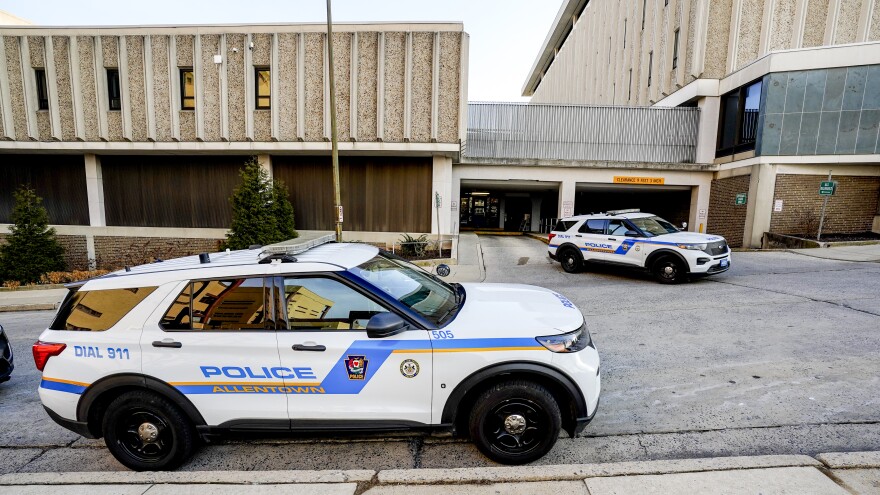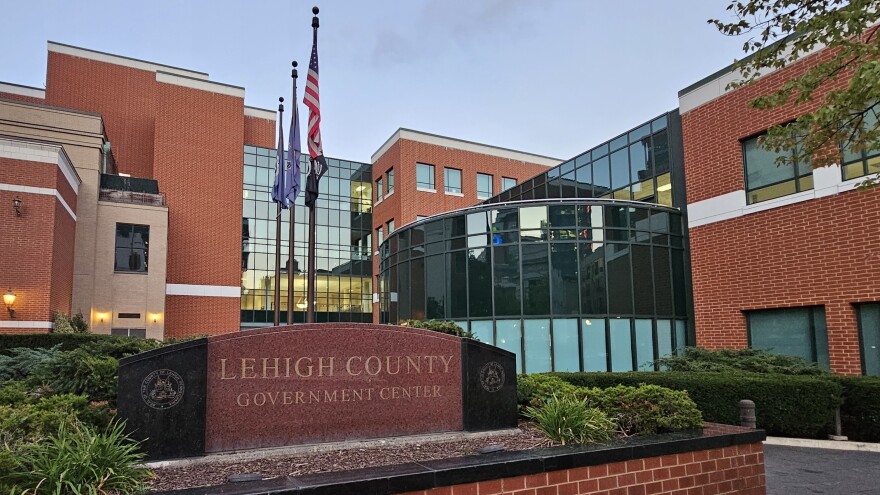ALLENTOWN, Pa. — Lehigh County Commissioners this week gave first approval to the $554 million budget for 2025 with no county property tax increase.
A final vote on the budget in a second reading is set for the commissioners' Oct. 23 meeting. After that, the county executive will have 10 days to veto any amendments approved by the board.
"The back and forth process for our budget is a year long process,"Geoff Brace
"The back-and-forth process for our budget is a yearlong process," Commissioner Geoff Brace said.
"We approve this in October, and immediately your department begins the process of setting it into motion for the new year, while also wrapping up the budget for the current year."
Commissioners noted the end of American Rescue Plan Act funding, which was use in projects such as Sierra Brook Nursing Home.
As originally proposed, the budget featured a $5.3 million general fund loss — planned to be covered by a 2024 surplus.
But officials said increased spending in the proposed 2025 budget would be maintained in coming years and cause Lehigh County to lose a further $5 million each year from 2026-28 if commissioners don’t act to raise taxes or cut costs.
Officials would be forced to dip into the county’s stabilization fund, cutting it from $25 million to $10 million by the start of 2029.
That total would be “woefully inadequate for a budget of this size,” Reeves told commissioners.
It's “a little bit of a worse five-year forecast than we’ve seen,” he said.
Community intervention specialists approved
Commissioners debated adding a $250,000 line item to introduce "community intervention specialists" who would coordinate efforts with local police.
According to Commissioner Jon Irons, the program would let any police dispatched to optionally refer to community intervention specialist caseworkers who would respond to the situation and follow up.
"I believe that mental health care is the most important challenge facing our communities,"Jon Irons
Irons said he hoped it could reduce the stigma attached to asking for and getting mental health treatment.
"I believe that mental health care is the most important challenge facing our communities," Irons said.
"Whether it's depression and anxiety in our students that I've seen as a case manager in public schools, and anyone who's worked in and around schools and young people can certainly speak to that trauma in adults, drug addiction or even just loneliness, an epidemic of loneliness that is coming over the country as we sort of emerge from this pandemic into a very complicated and intense world."
Commissioner Dan Hartzell said it sounds great, but going forward financial prioritization needed to be done to prevent a dramatic tax increase given that the amount equates to about 0.83 mills of a mill in the tax rate.

"I'll I guess my conclusion is I cannot vote against providing more mental health care in this instance, but I'll say I would want to consider it a continuing pilot program," Hartzell said.
He and some other commissioners urged the program to be considered a pilot program upon its implementation.
Some members of the audience attending voiced support for the amendment, speaking to the different needs mental health crises and criminal activities have in terms of response.
Joseph Welsh of the Lehigh Valley Justice Institute supported such a program, saying the state of mental health is a "crisis."
Welsh argued that lessening the impacts of mental health on the population can lead to potential savings in increased productivity and decreased overall use of social services.
The amendment passed 6-2, with commissioners Beitler and Pineda voting to approve.
Another amendment adjusting for $1,850,520 of duplicated insurance costs passed unanimously, while others generated debate from board members.
One proposed amendment reducing $35,000 in insurance coverage and costs for district attorney vehicles failed to get the required five votes for an amendment.
A final amendment passed cut the line item for Children and Youth Services in half, or $1,175,000. The funds are to be placed in a designated fund balance that can be released by the board as it further reviews program needs.


